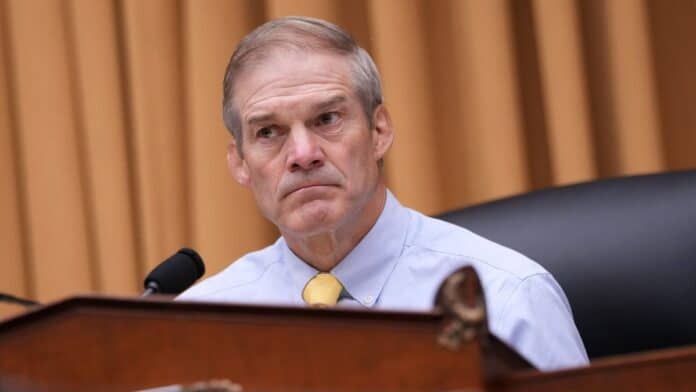The White House condemned the latest effort from House Oversight Committee Democrats to pin President Trump in the middle of the Jeffrey Epstein files.
The Oversight Dems said they received emails from Epstein’s estate, arguing they “raise serious questions about Donald Trump and his knowledge of Epstein’s horrific crimes.”
The documents show a redacted name labeled as “victim,” the identity of whom many believe to be the late Virginia Guiffre.
A 2011 email from Epstein to Ghislaine Maxwell reads, “I want you to realize that that dog that hasn’t barked is Trump. VICTIM spent hours at my house with him, has never once been mentioned.”
Another email, dated 2019, sees Epstein writing to author Michael Wolff,”[Victim] mara lago. [Redacted]. Trump said he asked me to resign, never a member ever. Of course he know about the girls as he asked Ghislaine to stop.”
Guiffre publicly said she “never witnessed wrongdoing by President Trump,” the Oversight Committee wrote on X. “Democrats are trying to create a fake narrative to slander President Trump. Shame on them.”
White House Press Secretary Karoline Leavitt said the Democrats “selectively leaked emails to the liberal media to create a fake narrative to smear President Trump. The ‘unnamed victim’ referenced in these emails is the late Virginia Giuffre, who repeatedly said President Trump was not involved in any wrongdoing whatsoever and ‘couldn’t have been friendlier’ to her in their limited interactions.”
Leavitt explained that President Trump “kicked Jeffrey Epstein out of his club decades ago for being a creep to his female employees, including Giuffre.” She further noted that the “stories are nothing more than bad-faith efforts to distract from President Trump’s historic accomplishments, and any American with common sense sees right through this hoax and clear distraction from the government opening back up again.”
President Trump took to Truth Social to comment on the matter, stating that the Democrats are “trying to bring up the Jeffrey Epstein Hoax again because they’ll do anything at all to deflect on how badly they’ve done on the Shutdown, and so many other subjects.”
“Only a very bad, or stupid, Republican would fall into that trap. The Democrats cost our Country $1.5 Trillion Dollars with their recent antics of viciously closing our Country, while at the same time putting many at risk — and they should pay a fair price,” he wrote. “There should be no deflections to Epstein or anything else, and any Republicans involved should be focused only on opening up our Country, and fixing the massive damage caused by the Democrats!”
















